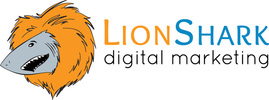The Backstory
Jimmy Daly provided a paradigm shifting assertion in one of the bootcamp classes:
“Committing to a punishing editorial calendar is lazy because it means you don’t know your audience or the goals for your content.”
This statement was like a punch between the eyes. I had committed to writing two blog posts per week when I started LionShark over three years ago and had never deviated from it. I stuck to this rigid schedule regardless of client workload and life events (including the birth of a little guy in 2015). Come hell or high water, if it was a Tuesday or a Thursday, you could expect to see a LionShark blog post. I thought this consistency was valuable and my incredibly hard work was prudent for the success of the company.
However, when Jimmy Daly advised that more companies need to adopt a “library mentality” instead of a “publication mentality” with their content, I froze. He explained that content marketers get so caught up in the idea that they constantly need to have something new, that they lose sight of the real purpose for their content.
Content should help people. Your customers need what they need, when they need it – not when it can fit into an open slot on your editorial calendar. The converse is true as well. Just because it’s a Tuesday doesn’t mean that someone needs to know something. A punishing editorial calendar delays getting the most important content into the brains of your audience and pushes fluff when there’s nothing critical to convey.
The Decision
Our editorial calendar has been tossed.
What are We Hoping to Accomplish?
The internet doesn’t need more noise, so this change is how we plan to do our part to put a kink in the firehose of optimized content on the web. Eliminating filler content will reduce the noise and free up more of our time. This is time that we can invest into doing a better job with what will help our customers the most.
So instead of seeing a steady stream of 8-9 articles a month, you’ll probably only see about 2-4. But the articles that we do publish will be helpful, actionable, in-depth, well researched, and downright awesome!
Spending more time with each piece of content will, hopefully, provide a greater sense of accomplishment and achievement to stave off burnout and keep us passionate about our work.
The Logistics
We’ve already explained that we’ll be posting articles less often and that there won’t be a set schedule to our posting, but we’ll likely still push content live mid-week when we do post. The reasoning behind this is simple. We believe that on Mondays people are too busy launching into the busy work week ahead to read anything with much consideration, and on Fridays people are already checking out mentally in anticipation of the weekend ahead. So, look for our posts in the Tuesday, Wednesday, or Thursday timeframe.
Each post will be more in-depth and better edited because we’ll have enough time to dedicate to each article. Hopefully, this will lead to smarter, more readable articles, which will translate to increased reader satisfaction.
We’re in this Together
You’re along with us on this experiment, so we’ll update you with our progress and solicit your input along the way.
In any experiment, you don’t know what the findings will be until after the work has been done and the results are analyzed. We’re hypothesizing that the results of this experiment will be great, but if it ends up being a big flop, we’ll be honest with you. This is an exercise that we can all learn from, and hopefully you’ll find some helpful takeaways for your own content strategy.
Determining Success
To identify if this experiment is a success, we’ll analyze metrics like site visits, bounce rate, time on site, pages per visit, and social media shares. With all the data we’ve accumulated leading up to this point, we should have solid benchmarks to gauge our success free of seasonal fluctuations and other variables.
We won’t just be looking at the hard data though to evaluate our efforts. We’ll also assess intangibles like excitement about the process of writing, satisfaction with the final product, and an overall feeling of personal fulfillment.
Kate Pierce is the owner of LionShark Digital Marketing LLC, a West Michigan internet marketing company. Her areas of expertise include Paid Search, Search Engine Optimization, Business Blogging and Web Copywriting. She lives in the Grand Rapids area with her husband and son and enjoys cooking, watching sports, and spending time together as a family. Like a true digital marketing expert (i.e. geek), she loves talking about current marketing trends… so don’t say you weren’t warned!


 RSS Feed
RSS Feed
